Post
A catch
Save a catch to start your fishing logbook. You will be able to to share it with the community if yo want!
A fishing trip
Post an ad to go fishing with other fishermen
Save a catch to start your fishing logbook. You will be able to to share it with the community if yo want!
Post an ad to go fishing with other fishermen
Share a thought, a question with the community
My favorite cities
×Join our 238 fishermen and our 2 cofishermen in Portessie in Moray. The fishing forecast is currently 3.9. The most caught fishes here are the sting ray fish, seabass, the bull huss and the garfish. Come try the most famous fishing techniques like the underwater fishing, roubaix fishing, cast fishing with dough or plug fishing for roach.
Our fishing forecast of Portessie indicates the best time to go fishing in this city.
The Sting Ray fish
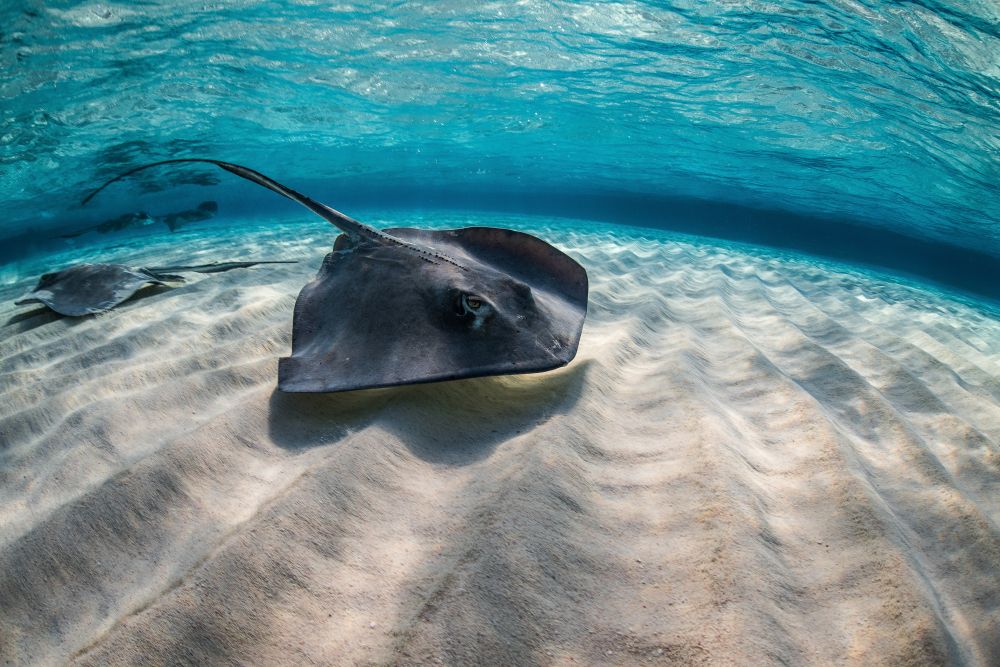
The Sting Ray fish belongs to the Dasyatidae family. The total length of this line is generally greater than 1 m, with a weight of 15 to 20 kg. The maximum known length is 2.50 m. The maximum lifespan is 20 years. Breeding usually takes place in summer. The female gives birth to 4 to 9 young. It can be fished all year round. The body of the sting ray is flattened, diamond-shaped, pointed at the front, with large pectoral fins: it is as wide as it is long. The tail, representing 60% of the total length, looks like a whip and, at one third of its base, it has a serrated spine, connected to venomous glands under the skin. The dorsal surface is bluish grey or reddish-grey in color, sometimes with white spots. This back is smooth, without tubers. The ventral side is clear. The sting ray has no dorsal fin or caudal fin and its pelvic fins are very small. The eyes are located on the dorsal surface while the mouth, nostrils and gill slits (five slits on each side) are on the ventral surface. The eyes are prominent, which gives him a very wide field of vision. Next to the eyes, an inhalant valve, called a spiracle, carries water into the gills. The mouth is located quite far back. Teeth are numerous and small, pointed in males and molar-shaped in females. The tail acts as a simple rudder and is not used for movement. It is done by the large pectoral fins, by beating. These fins are also used for burying in sand.
The Sting Ray fish is a famous fish you can catch in Portessie.Seabass
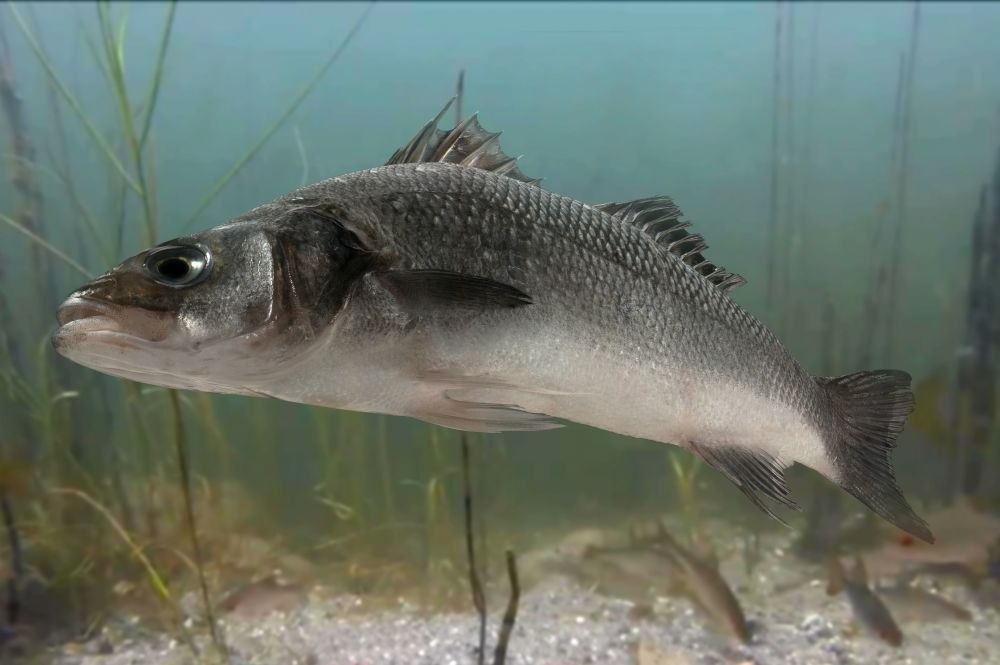
The Seabass belongs to the Moronidae family. Its size is usually between 70 and 80 cm (1.10 m maximum). The life expectancy of the seabass is variable: about thirty years in an aquarium, 24 years in Ireland, 6 years maximum most often in the Mediterranean. Breeding takes place between December and March or January to May depending on the location. The female lays 200,000 eggs at once. The body of this fish is elongated and slightly compressed. The two dorsal fins (the first thorny and the second soft) are well separated and have almost the same length and height. The anal fin is composed of 10 soft rays preceded by 3 thorny rays. The caudal peduncle is quite elongated and the caudal fin is indented, with an upper lobe often slightly longer than the lower lobe. The pectoral fins are short. The upper part of the head is quite straight, the upper jaw is a little shorter than the lower jaw. The operculum may have a more or less visible black spot in its posterior upper part. The scales are small in size but clearly visible. The lateral line is slightly arched in the front part of the body. The back is grey in color, the sides are lighter, with yellowish or silvery reflections. The pectoral and ventral fins are yellowish white; the others are darker. Mostly in young individuals, black spots may be present in the dorso-ventral region.
Seabass is a famous fish you can catch in Portessie.The Bull Huss
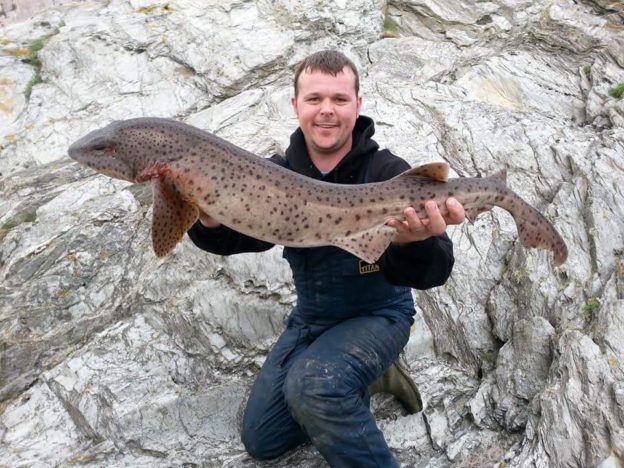
The Bull Huss belongs to the Scyliorhinidae family. Small in size, they usually measure 60 to 80 cm, although there are larger ones, since they can reach 1.5 m in the Mediterranean and 2 m in the Atlantic. This fish can live for 75 years. It spawns a hundred eggs all year round, especially in the late winter and in July. It is abundant every day of the year. This fish is not really active but still is hard to catch. The upper part of the Bull Huss is light brown in color, covered with small dark brown spots. Because of this pattern of spots, it is also called spotted cat shark. The part of the flank is white and grey. The mouth and nose holes are below his obtuse head. The particularity of the Bull Huss is that its nostrils are linked to the mouth by a curved line.
The Bull Huss is a famous fish you can catch in Portessie.The Garfish
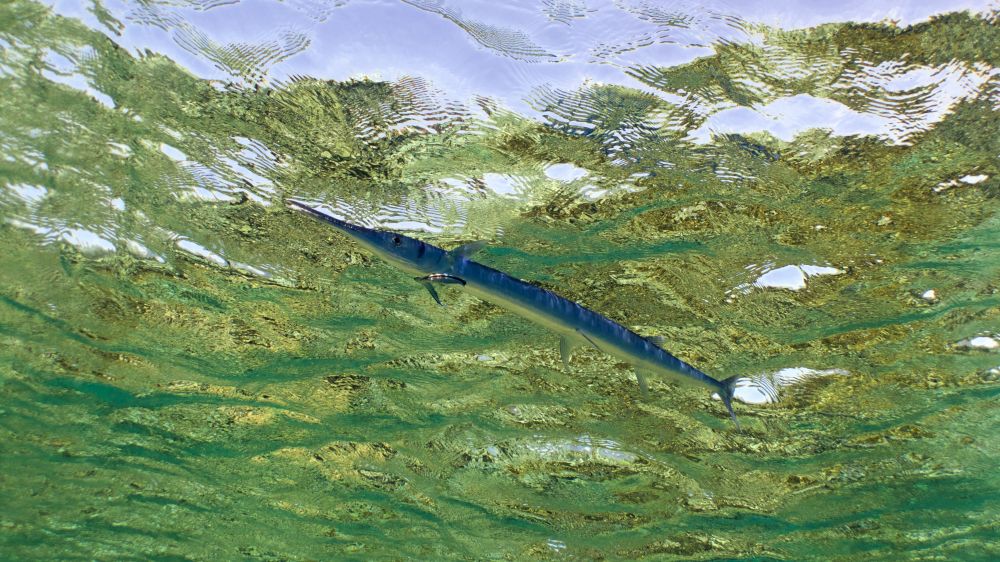
The Garfish belongs the Belonidae family. It measures from 30 cm to more than one meter and can weigh up to 5 kg, the average weight being around 400 g. It has a lifespan of about 10 years. It breeds from Mai to June. The female lays thousands of eggs. The Garfish is a fish with a very tapered body of oval cross-section. The head extends into a long beak formed by two thin jaws armed with sharp teeth. The lower jaw is slightly longer than the upper jaw. The nostrils are located in a depression in front of the eyes. The ventral fins are located approximately in the middle of the body, the caudal fin is very indented, the dorsal and anal fins are very far back, at the same level. The back of the dorsal fin is the same height as the back of the anal fin. The caudal peduncle has a strong hull. The very low lateral line is on the belly and not on the sides like other fish. The back is a dark blue-green, the sides are silvery, the belly white, the edges green.
The Garfish is a famous fish you can catch in Portessie.The Haddock fish
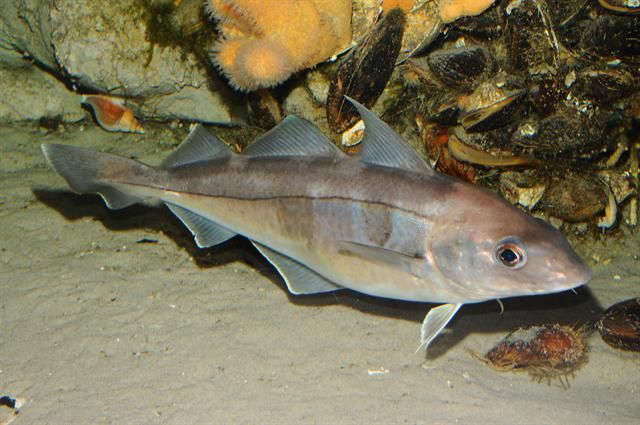
The Haddock fish belongs to the Gadidae family. The average size of haddock is 30 to 50 cm. It can measure up to 1.20 m and weigh up to 14 Kg and can live until the age of 20 years. It reproduces in spring. The female can respond to up to 3,000,000 eggs. This fish can be caught all year round outside of spawning periods. Like all coastal fish of which it is a part, haddock has three dorsal fins and two anal fins. Its body is more or less dark, crossed by a black lateral line and characterized by its silvery reflections. Its belly has a lighter shade on its back, it can be olive green and sometimes black. Two distinctive features for this fish: the black spot at the base of its pectoral fin and a small barbel on its lower jaw.
The Haddock fish is a famous fish you can catch in Portessie.Our fishing forecast of Portessie indicates the best time to go fishing in this city.
Our fishing forecast of Portessie indicates the best time to go fishing in this city.
Our fishing forecast of Portessie indicates the best time to go fishing in this city.
